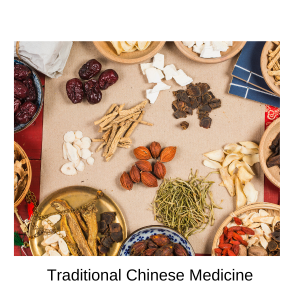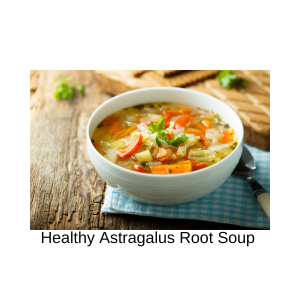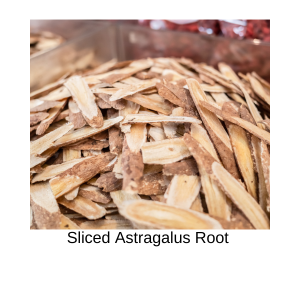Astragalus Root: Importance in TCM, Immune System Support, Usage, and Research
Oct 25th 2024
Astragalus Root: Importance in TCM, Immune System Support, Usage, and Research
Astragalus root, also known as Huang Qi in Traditional Chinese Medicine (TCM), is a highly respected herb renowned for its immune-boosting properties and its ability to strengthen the body's energy, or Qi. Revered as an adaptogen, astragalus root has been used for thousands of years in TCM to improve overall wellness, protect against stress, and support longevity. In recent years, astragalus has gained widespread attention for its scientifically-backed benefits on immunity and energy levels. This comprehensive guide dives into the significance of astragalus root in TCM, its immune-boosting effects, proper usage, ideal times for use, and the supporting research.
What is Astragalus Root
Also Known As Huang Qi?
Astragalus root, derived from the plant Astragalus membranaceus, has been a staple in TCM for centuries. Its versatility in treating various health conditions makes it a sought-after herb in both ancient and modern herbalism. Native to northern and eastern China, Mongolia, and Korea, this hardy plant belongs to the legume family. The part used medicinally is the root, which is typically harvested in its fourth or fifth year, allowing it to reach peak potency.
Astragalus root has a mild, slightly sweet taste, making it easy to incorporate into teas, soups, and tinctures. Beyond its traditional usage, modern herbalists praise astragalus for its adaptogenic qualities, which help the body resist physical, emotional, and environmental stressors.
The Importance of Astragalus Root in Traditional Chinese Medicine (TCM)
In TCM, astragalus root holds a prestigious place as a tonifying herb. Known as Huang Qi, which translates to "yellow leader," astragalus is recognized as a Qi tonic, primarily working to support the lungs and spleen. According to TCM principles, the spleen is responsible for extracting nutrients from food and converting them into energy, while the lungs distribute this energy throughout the body. When these systems are well-supported, the body's vitality, or Wei Qi (defensive energy), becomes stronger, enabling the body to ward off illnesses more effectively.
 How Astragalus Strengthens Wei Qi (Defensive Energy)
How Astragalus Strengthens Wei Qi (Defensive Energy)
Wei Qi, often described as the body's defensive energy, is essential for immune protection in TCM. Astragalus strengthens Wei Qi by:
- Nourishing the lungs and spleen, the two main organs responsible for Qi production and distribution.
- Balancing body fluids to maintain moisture and prevent dryness in the respiratory system, which is essential for defending against pathogens.
- Invigorating Qi flow to ensure that energy circulates smoothly, aiding in recovery from fatigue and improving resilience.
How Astragalus Works with the Immune System
Modern research shows that astragalus root plays a powerful role in immune regulation, thanks to its rich profile of polysaccharides, flavonoids, saponins, and other active compounds. These components work together to strengthen immune response, making astragalus particularly valuable for those prone to colds, flu, and other infections.
Polysaccharides: Immune-Enhancing Sugars
Polysaccharides are complex sugars that enhance immune cell activity, particularly macrophages and T-cells, which are essential for fighting infections. By stimulating these cells, astragalus helps the immune system respond quickly to pathogens, reducing the likelihood of infection.
Saponins: Anti-Inflammatory and Antioxidant Properties
Saponins, another active compound in astragalus, have anti-inflammatory and antioxidant effects. These properties protect cells from oxidative damage and help reduce chronic inflammation, which is often linked to weakened immunity.
Flavonoids: Cellular Protection and Longevity
Flavonoids, known for their antioxidant effects, help protect cells from free radical damage, which is crucial for long-term health and immunity. In addition to boosting immunity, the antioxidant properties of flavonoids are also associated with anti-aging benefits, as they help the body resist wear and tear over time.
How to Use Astragalus Root: Preparation and Forms
Astragalus root is available in multiple forms, each offering a unique method of intake. Here are the most common ways to use astragalus:
1. Astragalus Tea
One of the most traditional ways to consume astragalus is in tea form. To prepare:
- Add 1-2 tablespoons of dried astragalus root slices to a pot of water.
- Simmer the mixture for 20-30 minutes.
- Strain and drink the tea up to two times daily.
Astragalus tea provides a mild, slightly sweet flavor and can be combined with other herbs like ginger or reishi mushroom for added benefits.
2. Astragalus Soup
In TCM, astragalus root is commonly added to soups to create a nourishing and immune-boosting meal. To use
Astragalus in soup:
- Place 2-3 slices of dried astragalus root in your favorite soup recipe (chicken soup works particularly well).
- Let it simmer along with other ingredients for enhanced immune support.
Astragalus is removed before serving, as the root itself is fibrous, though its essence will infuse into the soup.
3. Astragalus Tincture
A tincture, or concentrated liquid extract, offers a potent and convenient form of astragalus root. The standard dosage for tincture is typically:
- 20-40 drops, 2-3 times daily, added to water or juice.
Tinctures are absorbed quickly and can be taken on the go, providing immune support without the need for brewing or cooking.
4. Astragalus Capsules or Tablets
Capsules or tablets provide a convenient, standardized way to consume astragalus root. These are ideal for those with a busy lifestyle. Follow the dosage instructions on the product label, typically ranging from 500 mg to 1,500 mg per day.
When to Use Astragalus Root
Astragalus is a versatile herb that can be used both preventatively and for specific health needs. Here’s how and when to incorporate astragalus root into your regimen:
Preventative Use
Using astragalus regularly during colder months or high-stress periods helps to:
- Strengthen the immune system, making it less susceptible to colds and flu.
- Reduce stress, as it supports adrenal health and resilience.
- Support energy levels by tonifying Qi, making it ideal for people experiencing chronic fatigue or low energy.
Acute Illness Recovery
Astragalus can also be used when recovering from an illness. Although it is best as a preventive, astragalus supports recovery by:
- Restoring energy levels that may be depleted from prolonged illness.
- Supporting immune function, which may be weakened post-infection.
Note: Astragalus is generally not recommended during an active infection, as it can stimulate the immune system in ways that may not be suitable during acute illness. Instead, it is best used as a preventative or for recovery.
Research Articles Supporting Astragalus Root's Benefits
Numerous studies support the health benefits of astragalus root, especially its impact on immunity, stress reduction, and anti-inflammatory effects. Here are some key findings:
Immune System Support
- Journal of Ethnopharmacology (2012): A study showed that astragalus polysaccharides significantly enhanced the activity of macrophages and T-cells, strengthening the body’s defense against pathogens. The study concluded that astragalus root could be a useful supplement for boosting immunity.
- Frontiers in Pharmacology (2019): Research revealed that astragalus possesses antiviral properties that may help in managing respiratory infections. The study emphasized the herb’s role in preventing illness during flu season.
Anti-Inflammatory Effects
- Phytotherapy Research (2016): This study found that astragalus extracts demonstrated strong anti-inflammatory effects by reducing markers associated with inflammation. These results highlight the potential of astragalus in managing inflammatory conditions.
Cardiovascular Health
- Chinese Medicine Journal (2018): Researchers noted that astragalus flavonoids improve blood vessel elasticity and reduce cholesterol levels, suggesting that astragalus may benefit cardiovascular health by improving circulation and reducing oxidative stress.
Anti-Fatigue and Adaptogenic Properties
- Journal of Biomedical Science (2014): A study reported that astragalus root increased endurance and reduced stress-related fatigue in animal models. The adaptogenic qualities of astragalus make it a beneficial herb for people experiencing chronic stress or fatigue.
Side Effects and Precautions
Astragalus root is generally safe for most people. However, some considerations include:
- Pregnancy and Breastfeeding: The effects of astragalus on pregnancy and breastfeeding are not well-studied. It is best to consult a healthcare provider if you are pregnant or nursing.
- Autoimmune Conditions: Because astragalus stimulates the immune system, it may not be suitable for individuals with autoimmune diseases. Consult a doctor if you have conditions like lupus, multiple sclerosis, or rheumatoid arthritis.
Conclusion
Astragalus root is a powerful, time-tested herb with a wide range of benefits that support immunity, vitality, and overall wellness. In TCM, it is revered as a tonifying herb that strengthens Qi, protects the body, and promotes resilience against stress. Modern research continues to validate its immune-boosting and adaptogenic properties, making it a valuable addition to both traditional and modern health regimens. Whether you're seeking to prevent seasonal illnesses, support energy, or maintain long-term health, astragalus root is a versatile and effective herb worth considering.



